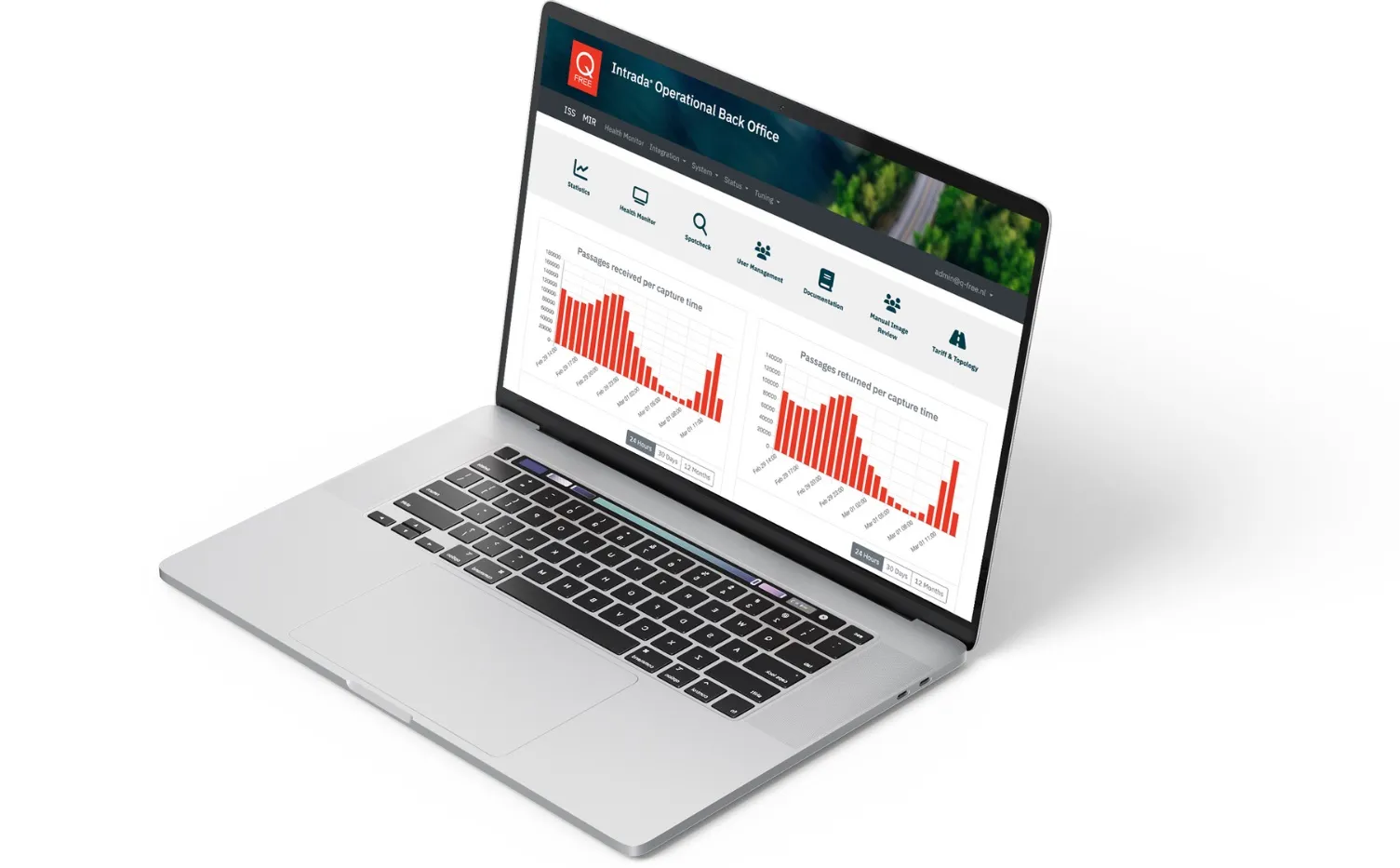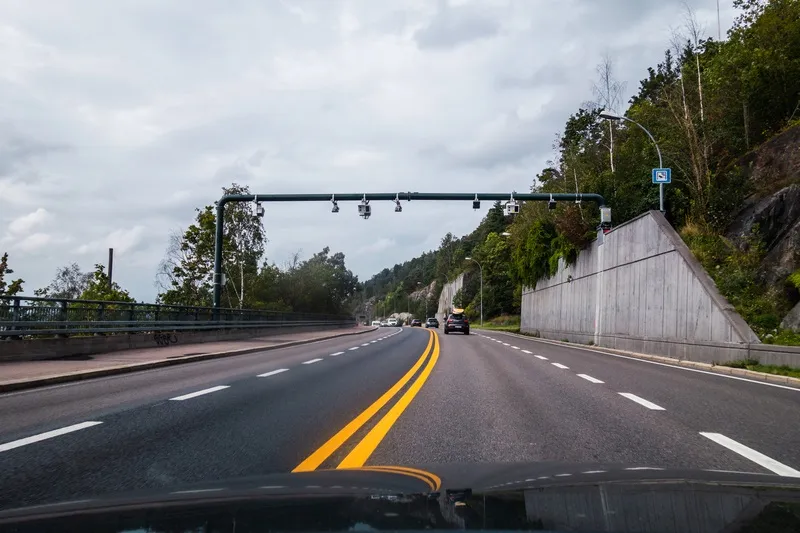
Q-Free has released a new software tolling solution, Intrada Operational Back Office, part of the mobility solutions provider’s Intrada suite of solutions.
The firm says it offers customers a comprehensive array of flexible tools and plug-and-play modules to significantly reduce costs and maximise tolling revenues. The new system is also interoperable with third-party technologies and fully scalable, making it ideal for multi-lane free-flow tolling operators across the globe.
While many back office products are project-based and built from scratch for specific vendors, Q-Free’s new off-the-shelf tolling software solution is remotely updatable and installed quickly and easily on any project.
Much like its cousin, Q-Free’s Kinetic Mobility Advanced Traffic Management System (ATMS), the new solution was developed to be modular and vendor-agnostic. This allows network operators to integrate any existing or new technologies into their system seamlessly, including Q-Free’s own roadside systems.
The new platform uses the Intrada Insight identification engine that is currently handling millions of toll transactions daily. It accurately identifies and classifies vehicles, with Q-Free’s automatic licence plate recognition solution, ensuring precise toll collection and minimising revenue leakage.
Personal data is carefully protected with automated retention, deletion and anonymisation policies, making Intrada Operational Back Office fully compliant with Europe's General Data Protection Regulation as well as other country-specific data protection regulations.
Q-Free says operators can automate reports to deliver critical information such as passage and journey data, evidence for enforcement and even equipment health.
“We know multi-lane, free-flow tolling is the future of the industry,” said Fredrik Nordh, Q-Free’s executive vice president of tolling.
“Our Intrada Operational Back Office will help revolutionise the tolling industry with its simplicity, security and efficiency, ensuring our customers are future-proofed for emerging technologies as the tolling industry evolves.”










